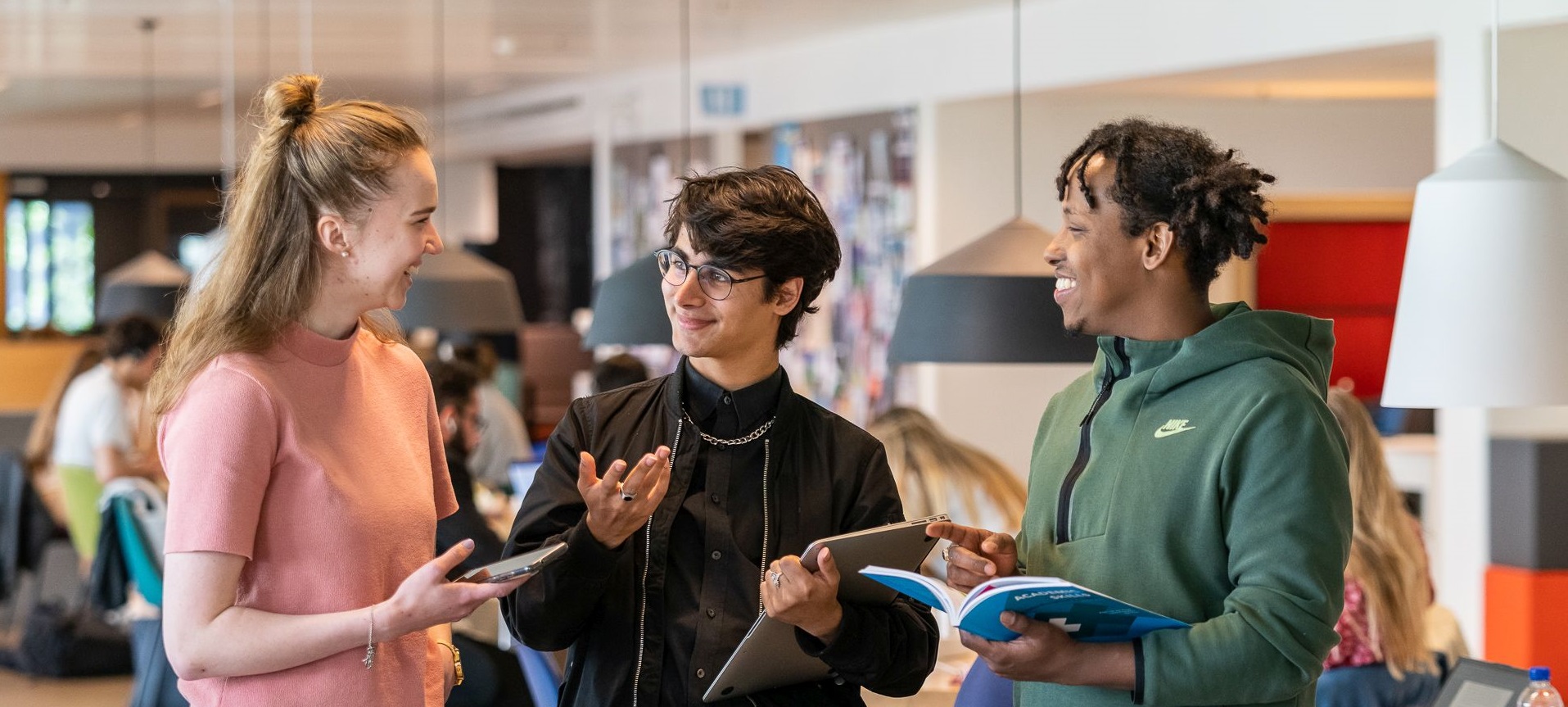
Study information | Experience Day
Experience Day Cultural Anthropology & Development Sociology On Campus
- Date
- Thursday 28 March 2024
- Time
- Address
-
Pieter de la Court
Wassenaarseweg 52
2333 AK Leiden - Room
- SC01
Are you interested in the BSc programme Cultural Anthropology and Development Sociology, but not yet sure what it all means? Come to our Experience Day!
During this day you will get in touch with some of our students, our study adviser and our staff. You will experience what it's like to walk through the coridors of the faculty building, sit in the lecture halls, and take part in a real lecture and tutorial together with other prospective students.
Programme
| 13.30 - 13.45 |
Welcome Central Hall |
| 13.45 - 14.15 |
Practical information by our Study Advisor Caro Aalderink SC01 |
| 14.15 - 15.00 |
Lecture 'Anthropological study of Water Values and Infrastructure' by Sabine Luning SC01 |
| 15.00 - 15.15 |
Break |
| 15.15 - 16.00 |
Tutorial in Dutch by Tim van de Meerendonk 5A23 |
|
Tutorial in English by Erik Bähre 5A42 |
|
| 16.00 - 16.45 |
Meet your future peers and our interfaculty study association WDO during (non-alcoholic) drinks 3rd floor at the CADS Deparment |
Homework
As a student you will often need to prepare some readings or assignments before a lecture and tutorial. To make to most out of this student Experience Day we want to ask you to prepare this small assignment.
Water is an important element in our daily lives, and we become aware of that for instance when getting soaked in the rain or taking a shower at home. As you go about your routine in the coming days, pay attention to the presence of water in your environment. Try to think about the connections between rainwater and the water you use for washing, drinking etc. Where does your tap water come from? What are the sources? How is its provisioning organized? Maybe you can draw some of the infrastructure needed to bring water to your house.
In the process of provisioning households with tap water, the characteristics of water change. Water is cleaned, and since citizens pay per cube meter of tap water it also obtains a monetary price. Try to take the pricing of tap water as a starting point to think about the governance and economy of piped water.
Discuss with friends: what are the values you attach to water with different qualities and shapes: salt and sweet water, water in fountains and in fonts, in the sky and in our daily use. How can all these ‘waters’ be valued and appreciated? Should all these waters have a price?
